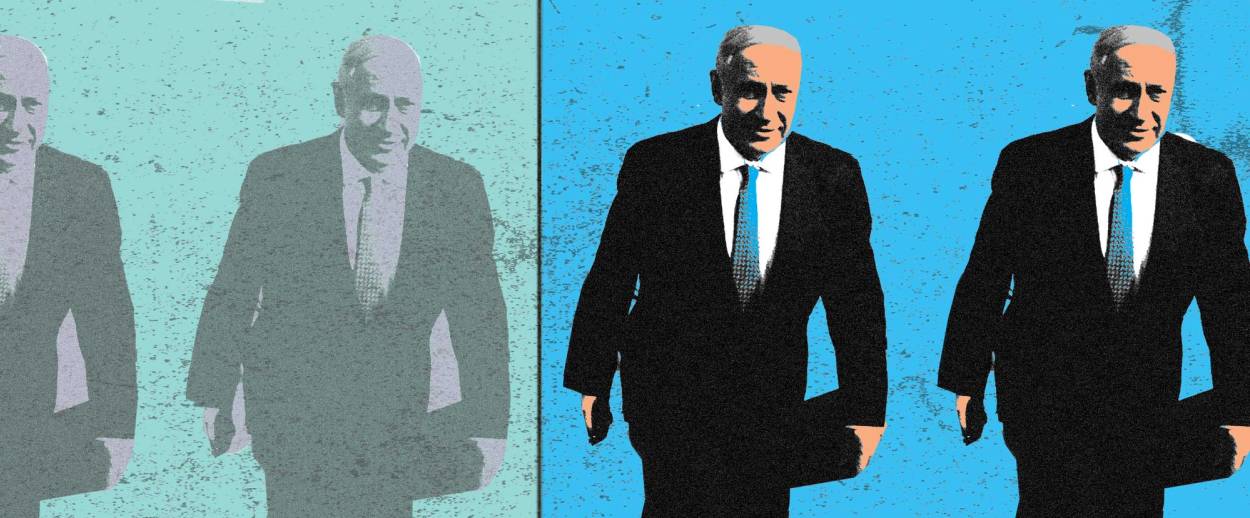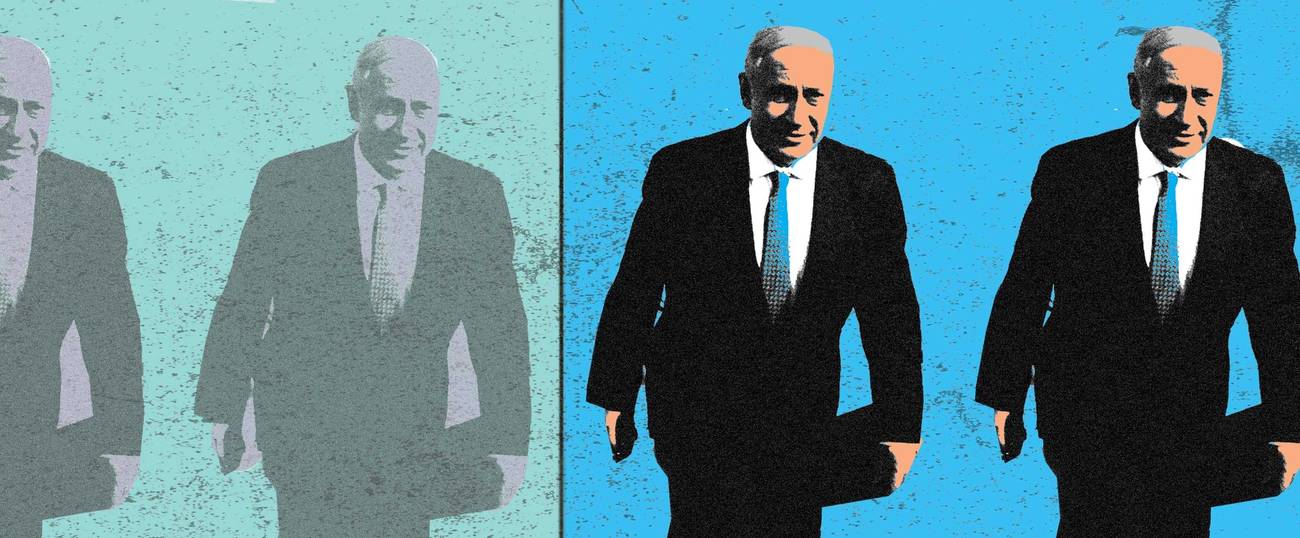The Anthropological Case of Bibi Netanyahu
Is there anything behind repeated criminal allegations against the prime minister? Depends on your definition of ‘anything.’




Israel’s prime minister, Benjamin Netanyahu, is under investigation.
That’s an evergreen headline: In the past two decades, Netanyahu has braved no fewer than 12 large-scale inquiries for various types of alleged misconduct, overseen by three attorneys general and two state comptrollers and resulting in precisely zero indictments. The accusations were frequently lurid, like something out of Sir Arthur Conan Doyle—The Case of the Garden Furniture! The Case of the Pistachio Ice Cream!—and yet, upon further scrutiny, all failed to harden into evidence that could trouble, let alone topple, Bibi. Last week, he was again questioned by police, this time for costly gifts, including fine cigars, he’d received from his pal, the billionaire Hollywood producer Arnon Milchan.
Why so much smoke and no fire? To Netanyahu’s supporters, each new allegation is proof that the prime minister is inherently innocent and is persecuted by a cabal of left-wing functionaries lurking deep in the bowels of the state apparatus. To his detractors, it’s another sign that Bibi is a nefarious operator dedicated to nothing but his own political survival. Both sides are wrong: Bibi’s long, strange, and tortured relationship with the law is not an exercise in criminal justice but a meditation on the meaning of meaning, one possible, really, only in a Jewish state.
Consider, for example, l’affaire Milchan. Streamlined and abridged for clarity, here’s what we know: The producer and the prime minister are friends. The producer gives the prime minister gifts. The producer is a rich man, and he has a rich man’s tastes, so the gifts that he gives his friend are naturally expensive; he also donates, legally, to the prime minister’s campaign, and throws parties at his mansion to support Israel and introduce its ministers to Brad Pitt. The prime minister likes his rich friend the producer, and so he does him a few favors, including repeatedly lobbying John Kerry to issue the producer a new visa.
How would you interpret the above? It’s a question best suited for an anthropologist or anyone else trained in observing at what point an interaction between two people becomes a formal exchange. Was the producer offering the prime minister goods in anticipation of services? Or is it feasible that the two are just friends doing what friends do?
“There’s nothing wrong in receiving cigars as a gift from a friend,” said Netanyahu’s lawyer, Yaakov Weinrot. “Every person with a bit of common sense can understand that if an acquaintance or a close friend brings a friend cigars, there is and there cannot be anything wrong with it, and it is certainly not a criminal felony.”
It’s more than just an attorney’s obvious denial. Like all the talk surrounding Netanyahu’s travails, it’s an invitation to rethink the cultural norms of a highly tribal society that has adamantly refused any attempt (a constitution, say) to consolidate and clarify its political customs. That’s why the conversations about Bibi are never truly about whether any laws were broken—none, to date, were—and always about whether he acted one way when he should’ve acted another. Which, really, is to say that the conversations aren’t so much about the actual prime minister as a real-life public servant but about a character named Bibi, a tragic figure standing in for the country as a whole, an aging sabra with purple hair trying to come to terms with what the Zionist dream might look like in a nation now better known for its coders than for its commandos. That Bibi, like a player on the Kabuki stage, dances his way dramatically through life’s big conundrums: What are friends? How much luxury is too much? At what price loyalty? His role isn’t to provide concrete answers but to raise questions.
On cue, then, Netanyahu himself has provided the most eloquent defense of his actions to date. “There will be nothing,” he said apropos of the Milchan investigation, “because there is nothing.” He meant it, probably, in the strictest sense imaginable, but he might as well have been evoking Kierkegaard. “In a certain sense,” the great Dane wrote, reflecting on man’s moral and religious duty, “it is nothing I shall do. Yes, certainly, in a certain sense it is nothing, thou shalt in the deepest sense make thyself nothing, become nothing before God, learn to keep silent; in this silence is the beginning, which is, first to seek God’s kingdom.” There will be nothing because there is nothing—what a thoughtful meditation for a man whose father helped erect an independent state from the ashes of the Holocaust, whose brother died heroically defending it, and who now wonders what he himself might do for an encore. Might it be just nothing? If so, what a pity!
Israelis, however, hardly had time to savor their prime minister’s musings. A new affair had dawned. This time, Netanyahu is accused of colluding with a publisher of a major newspaper to guarantee good coverage in return for sidelining a competitor. Or maybe just as a friendly exchange—one can never be sure.
***
Like this article? Sign up for our Daily Digest to get Tablet Magazine’s new content in your inbox each morning.
Liel Leibovitz is editor-at-large for Tablet Magazine and a host of its weekly culture podcast Unorthodox and daily Talmud podcast Take One. He is the editor of Zionism: The Tablet Guide.